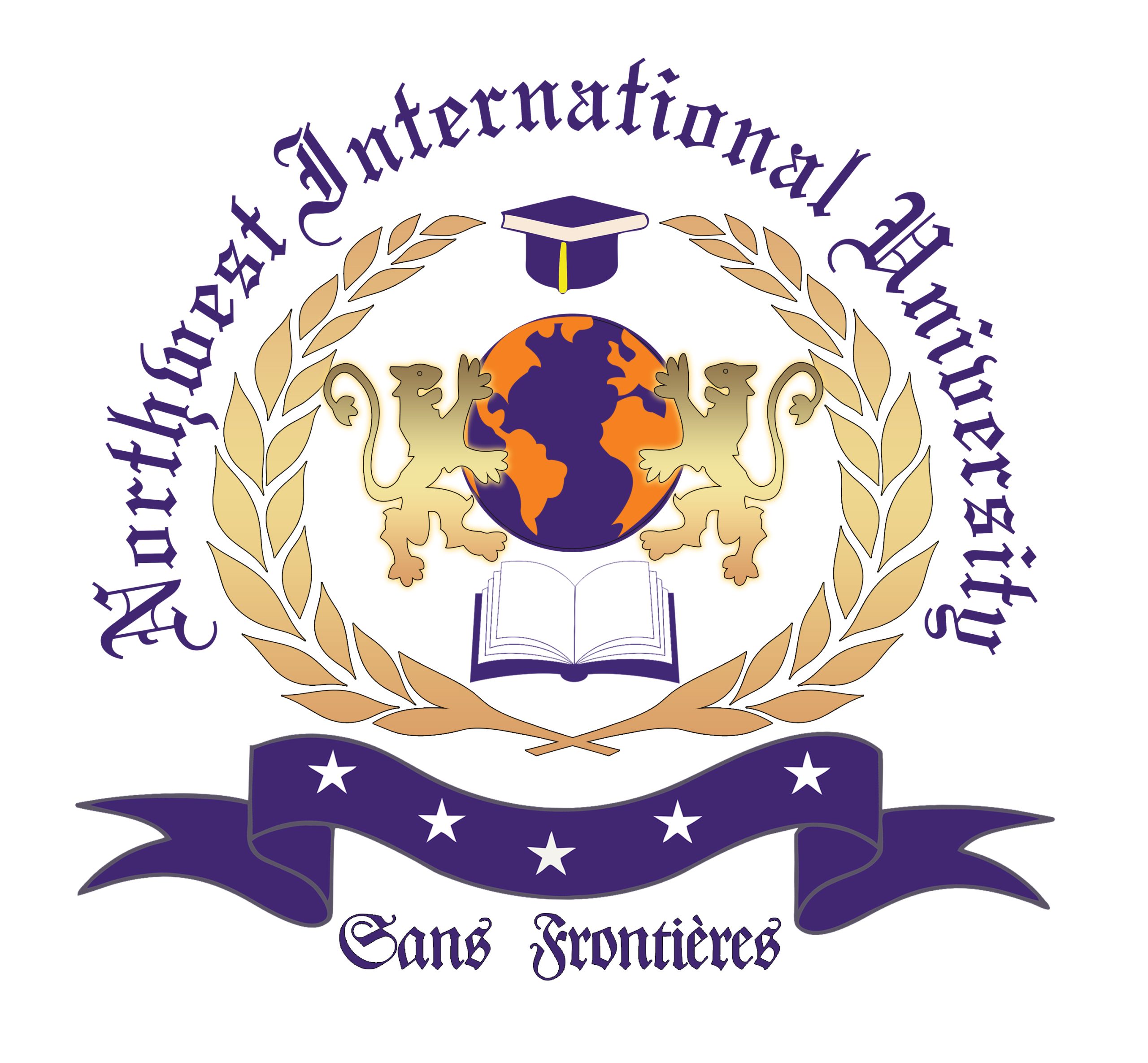Academic Programs
An academic program is defined as any combination of courses and/or requirements leading to a degree or certificate, or to a major, co-major, minor or academic track and/or Concentration. All institutions of higher learning offer academic programs. Academic programs comprise the core, required and elective courses that lead to a degree or certificate. Whether somebody is attending a two-year program at a local community college or pursuing a graduate degree at a large university, he/she will be involved in an academic program. The main types of academic program offered at many colleges and universities are certificate, undergraduate and graduate programs. Northwest International University as an institution of higher education also provides academic programs. It is consisting of various kinds of degrees and academic certificates. The University will develop curriculum/program for implementation of courses, seminars and etc. on the basis of organizations, institutions, company’s educational needs.


Academic Certificates
An academic certificate is an official document issued by an educational institution to confirm that an individual has successfully completed a specific course of study, passed required assessments, or acquired specialized knowledge in a defined subject area.
In many countries, universities and higher education institutes offer academic certificates that reflect a student’s proficiency in a particular vocational or professional field. These certifications may be pursued either independently or alongside academic degree programs, and they often serve to enhance employability by validating specialized skills.
In fields such as information technology, academic certificates can also function as industry-recognized credentials. They demonstrate a graduate’s competency in specific systems, tools, or methodologies required by employers. For instance, a computer science graduate may need to acquire additional certifications in areas such as network security or cloud computing to meet corporate hiring requirements and maintain service-level agreements.
Academic certificates not only provide formal recognition of skill and expertise but also support continuous professional development and adaptability in a competitive job market.
Academic Certificate and Professional Certification Programs
Academic programs, including associate, bachelor’s, master’s, and doctoral degrees, are designed with specific standards tailored to the educational and professional needs of each field of study. These programs may include in-person, online, or blended learning formats, depending on the discipline and the type of study. Additionally, some programs may be project-based, focusing on practical and applied skills.
Furthermore, short-term courses and professional qualifications are designed based on the specific conditions and regulations of the university, as well as the standards of each geographical region. These courses are tailored to prepare students for the job market by providing them with specialized skills, and can be delivered in online, in-person, or hybrid formats.
Northwest International University offers these academic programs with the highest global standards while adhering to local and regional requirements, meeting the diverse needs of students.


Graduate Programs
Northwest International University offers graduate programs in collaboration with its esteemed partner universities. These programs are designed to meet recognized academic and professional standards, focusing on fostering advanced knowledge and specialized skills across various disciplines. The courses are delivered through flexible learning formats, including online, in-person, or a hybrid model, as well as project-based learning, allowing students to gain practical experience in their fields of study. The programs are structured to enhance both theoretical understanding and real-world application, preparing students for leadership roles in diverse industries.
TVET NWIU Technical and Vocational Education and Training Certificates
Technical and vocational education refers to those aspects of the educational process that, in addition to general education, involve the study of technologies and related sciences, as well as the acquisition of practical skills, attitudes, understanding, and knowledge relevant to occupations in various sectors of economic and social life.
In this broad definition, TVET refers to a range of learning experiences relevant to the world of work. These learning experiences may occur in various contexts, including educational institutions and workplaces. There are vast differences between the different TVET systems and their social contexts. Additionally, the increasing complexity of globalization and the social and economic changes have significant implications for TVET.
Northwest International University offers academic certificate programs in accordance with advanced educational standards. These programs generally prepare students to enter a vocation after the certificate is awarded. Some certificate-based academic programs combine classroom instruction with hands-on experience to teach students a specific trade or skill. Other certificate programs are offered at the graduate level, adding additional credentials to an individual’s existing degree. Certificate programs can take anywhere from a few weeks to two years to complete.


Northwest International University offers a variety of TVET academic programs and certificates in collaboration with outstanding centers and institutions across different countries. Furthermore, according to the Prior Learning Assessment and Recognition (PLAR) educational system, the university awards academic certificates to students who have previously received training in specific technical/vocational fields of applied science and technology through participation in local accredited TVET institutions.
Non-degree Programs
Non-degree programs cater to individuals who wish to pursue an area of academic interest without the need for a formal professional degree. These programs provide an excellent opportunity for those looking to gain specific skills for career advancement or personal enrichment. Non-degree programs are designed to meet various educational needs, ranging from resume-building qualifications to enhancing personal knowledge and skills. Offered by many academic institutions, these programs can be taken online, allowing for flexibility and accessibility to learners worldwide.
The cost, structure, and requirements of non-degree programs can vary significantly depending on the provider. Whether you’re seeking to expand your expertise in a particular field or gain new skills for personal growth, there’s likely a non-degree program that aligns with your goals. It’s important to review the options available and make an informed decision based on your specific needs and interests.
At Northwest International University, non-degree programs are offered tailored to the needs of individuals or organizations when necessary, providing customized educational experiences.

Non-Degree Students (Exchange and Visiting Students)
At Northwest International University, non-degree students are defined as individuals who temporarily enroll in academic programs without initially being registered for a full degree at the host university. However, based on institutional agreements and academic performance, these students may be eligible for dual degree opportunities or formal credit transfer.
There are two main categories of non-degree students at NWIU:
- Exchange Students
Exchange students temporarily study at NWIU—typically for one semester or one academic year—under a valid student exchange agreement between their home university and NWIU. They participate in courses that can be transferred to their home institution. In certain cases, depending on bilateral agreements and academic performance, they may also become eligible for a Dual Degree upon completion of required credits and standards. - Visiting Students
Visiting students independently attend courses or academic programs at NWIU without a formal exchange agreement. They may already hold a degree and wish to further their education in a specific field, or may be seeking courses unavailable at their home university. These students can receive official certificates or transfer earned credits based on evaluation and academic agreements. In some cases, they may also qualify for joint or dual certification depending on their academic path.
Northwest International University offers one of the most flexible academic environments, allowing both exchange and visiting students to enjoy cross-institutional collaboration, credit mobility, and potential access to dual degree opportunities based on mutual recognition and academic integrity.
